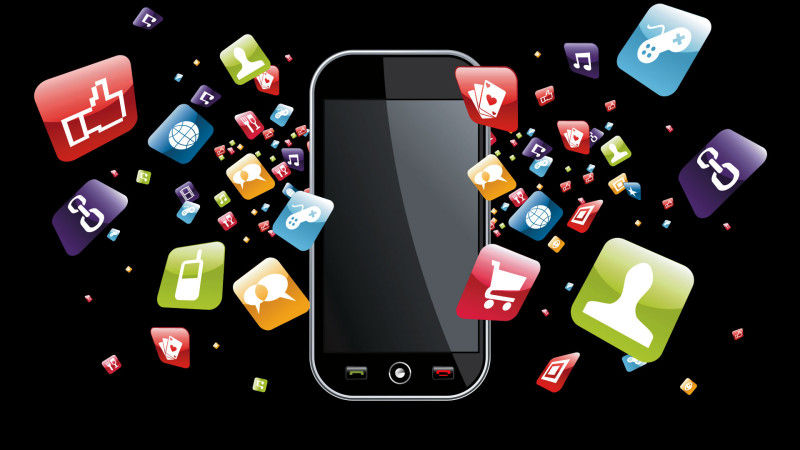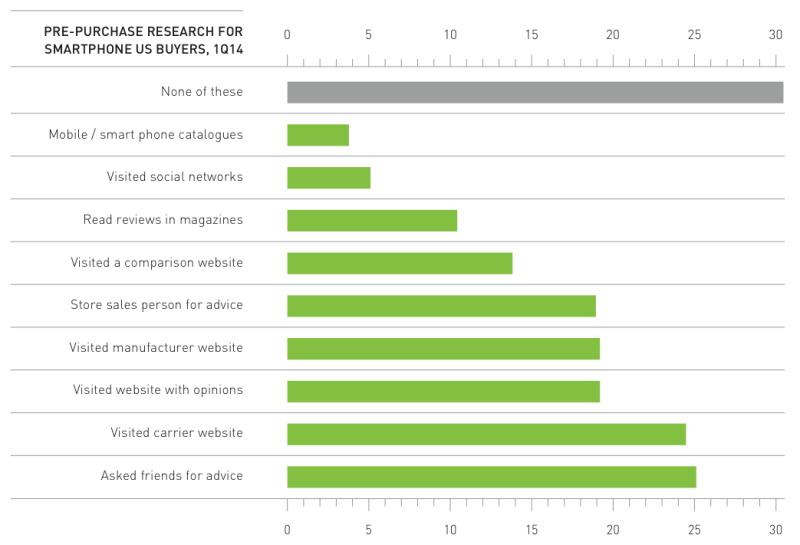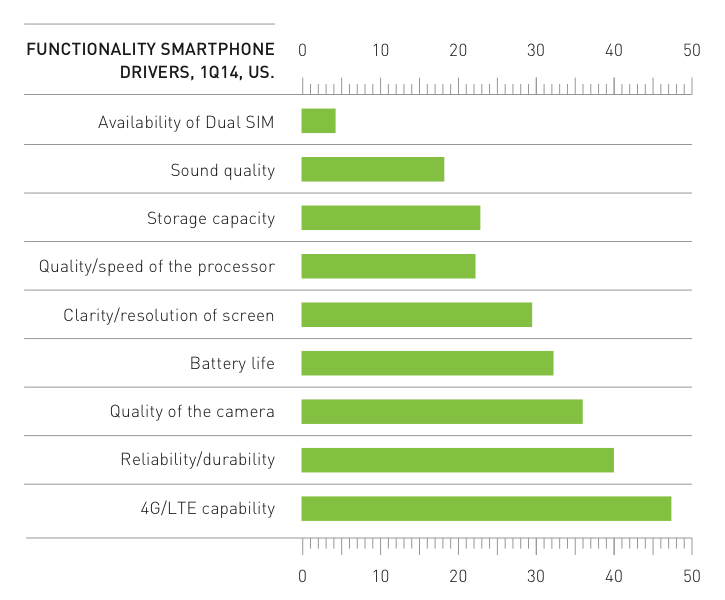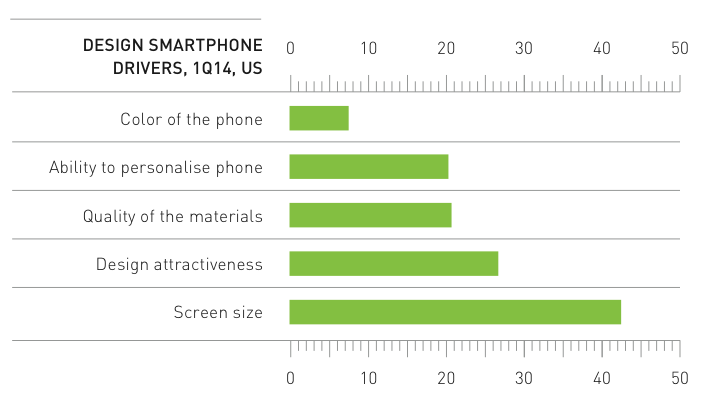Report: Screens, Carrier Networks And Staff Drive Smartphone Sales
- Fahad H

- Aug 26, 2014
- 2 min read

Kantar Worldpanel ComTech released a report earlier this month on US smartphone buying patterns. Based on survey data from its large consumer panel, the report highlights the phone features and resources that buyers value and consult in their purchase process.
Despite being a commodity, 64 percent of smartphone owners still purchase their mobile devices in-stores; 24 percent buy online. However there’s considerable online research that precedes the offline purchase in most cases.
The report reference age differences and differences between first-time buyers and those making replacement or upgrade purchases. It doesn’t go into much depth or detail about those differences however.

The chart above indicates the hierarchy of resources that smartphone buyers consult before making a purchase decision. The main sources of input are word of mouth or its online equivalent and carrier/manufacturer information, probably for images and specs.
In terms of functionality respondents indicated the carrier network was the single biggest consideration. After that overall “reliability” (quality), the camera and battery were the main drivers of smartphone decision-making.

Regarding specific hardware features or elements, screen size ranked as the single biggest consideration. Indeed, a smaller screen has held back some from purchasing the iPhone vs. its larger-screen Android rivals. It will be interesting to see how relative sales are impacted when the larger screen Apple device or devices are announced next month.

The report also indicates how in-store sales staff recommendations play in the ultimate purchase decision. The report found that 63 percent of in-store smartphone buyers in Q1 “were recommended a Samsung device, more than double the rate of recommendation for Apple, and almost 10 times more than Nokia.”
Given that HTC Android devices are typically rated higher than Samsung smartphones it makes one wonder if there are some “incentives” being provided by the Korean company to carriers to elicit those recommendations so consistently.
Of those who were recommended a Samsung device, “59 percent . . . went ahead and bought one while the rest opted for other vendors in the Android ecosystem. Only 6 percent of consumers who were recommended Samsung walked out of the store with an iPhone.”
This finding was the one that many media outlets ran with, showing an alleged “carrier bias” toward Android vs. the iPhone and specifically Samsung.

Comments